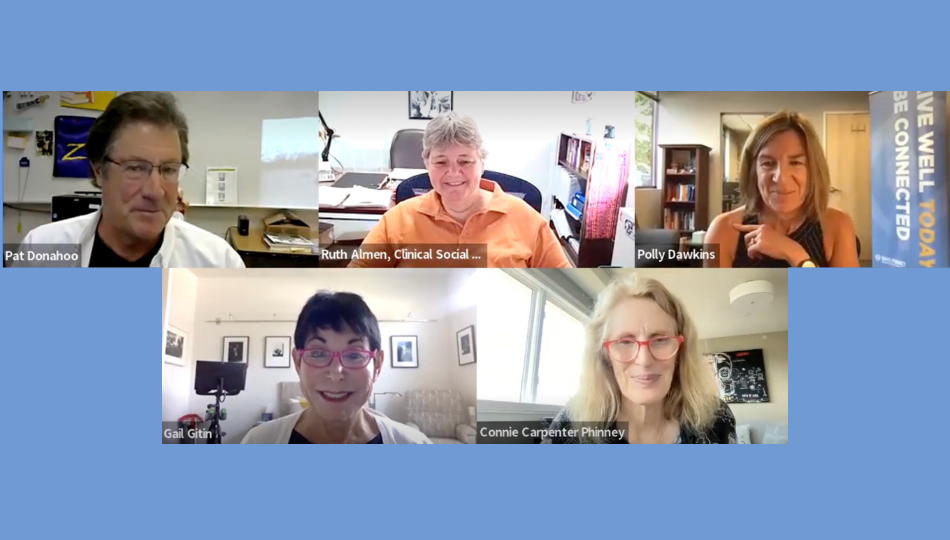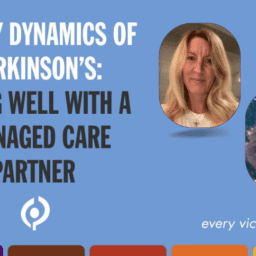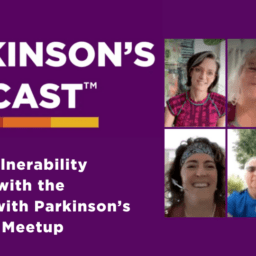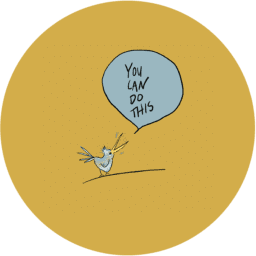Every month, we host a Care Partner Meetup that brings together our panelists, Connie Carpenter Phinney, Pat Donahoo, and Gail Gitin, to discuss what it’s like to be a care partner. While we don’t publish a recording of these monthly meetups because of the sensitive nature of the conversation, we do want to share some key takeaways so that even if you can’t join us live, you can still benefit from the expertise of our panelists and community members.
notes from the September care partner meetup
During this session, we were joined by Ruth Almén, licensed clinical social worker and founder of Parkinson’s Place. We discussed creating plans for the future for ourselves and our people with Parkinson’s. At the beginning of our meeting, Connie also reminded us of something extremely important: “Our care partner meetups are for you, not your person with Parkinson’s. When you come to these meetings, you’re coming to take care of yourself. You deserve just as much care as you give to your person with Parkinson’s, and we hope that our monthly meetups provide at least some of that.”
Who is Ruth Almén?
Ruth Almén is a Licensed Clinical Social Worker who worked with kids and families in the first half of her career. Her second half focused on older adults and people living with neurological diseases like Alzheimer’s and Parkinson’s. Working in the non-profit and rural sectors has allowed her to run support groups, organize fundraising walks, write grants, speak, and teach. Ruth also organized and implemented a Pedaling for Parkinson’s class and a Dancing with Parkinson’s class with community partners. She spent the first 25 years as a social worker in the Upper Peninsula of Michigan and then five years as the Clinical Social Work Manager at the Lou Ruvo Center for Brain Health/Cleveland Clinic Nevada. During this time, she was lucky enough to meet a cadre of people from the Parkinson’s Community and founded Parkinson’s Place Las Vegas. Ruth also chaired the Parkinson’s Foundation Moving Walk and was a member of the SW Regional Board during this time. Ruth currently lives in the NW Chicago suburbs and is the COO for Our Saviour’s Lutheran Church in Arlington Heights, IL. She is a care partner for her 95-year-old mom and two cats, and she loves to get her hands in the dirt, her soul in the woods, and her kayak in the water whenever she can.
Pat Donahoo, one of our regular panelists, introduced us to Ruth, and he counts her as a critical member of his and his wife’s care team.
Planning
- We make care teams preemptively in our daily lives, like when we arrange for a designated driver if going out to a party or having a person take our kids home from school if we can’t. There is nothing wrong with making care teams for our partners in the same way.
- Sometimes, we need someone else to make decisions that we are emotionally unable to make. This can mean decisions like deciding if your partner needs to move into assisted living or making medical choices. Having a team around you, such as a social worker, your children, a support group, and so on, can help you with those decisions. Pre-planning with a care team will also help you even if you cannot make decisions yourself due to your health or your partner’s health.
- Make a plan together. People usually want to help, they just need to know what you need and exactly what to do when helping. For example, let’s say your partner really enjoys movies. Have one or two friends be his movie friend; teach them how to take him to the movies, ensure he gets his food, and sits in his seat safely. If you have business trips, find a person you and your person with Parkinson’s are comfortable with to assist them. If friends are offering to make food, make sure they understand what foods your person with Parkinson’s eats and what your family enjoys. These steps make it easier to accept help when offered and to ask for help when needed.
Adult children as care partners
- Your kids may ask to be a part of your care team, but there are certain tasks that both you and your person with Parkinson’s may not want them to handle, like showering or cleaning up bowel incontinence. In these cases, an extended care team may be beneficial. Just as with friends, you can have boundaries with your children, and they will appreciate it.
- Give your kids information to read, too. Pat suggested giving your child a copy of the Every Victory Counts Manual® for Care partners. To request your own, visit our site here.
- One of the things that may prove most difficult for your children to accept is if their parent with Parkinson’s personality changes. Our panelists had many suggestions on how to help with this. Remind them that they probably wouldn’t be happy if they were also diagnosed with a progressive illness that takes away many motor skills they previously had. Invite your children to come to events like Rock Steady Boxing or an event in your own community so they can meet other people with Parkinson’s and other care partners to create their own communities. Encourage them to talk to their parent with Parkinson’s about the symptoms they are noticing so that all parties understand what is happening.
- Send your children the notes you’re probably already taking at doctor’s appointments. FaceTime them in if you can. Call them if they are available. Provide your children with a way to hear directly from doctors what is happening to their parent. Give them a chance to ask their own questions. Let them hear your concerns and what the solutions are. This will also help in their responsibilities as care partners, as they will understand more about Parkinson’s and the needs of their parent with Parkinson’s.
- Don’t keep your responsibilities a secret. In case of an emergency, your children, or whoever you have in your care team, will need to know what to do in your absence. Again, people want to help, they just need to know what to do and how.
Helpful tips
- Set up auto pay. It will ensure that your bills are paid and take at least one responsibility off your mind.
- Support groups can come in many forms: a knitting club, a Bible study, the other parents at after-school pickup. Find a group of people you can talk to that will hear your problems and help you work through them. It is difficult enough caring for a person with Parkinson’s on your own, do not silence yourself outside of that.
- A power of attorney legal document is a way to ensure that someone you trust, whether it be yourself or someone else, can make decisions if your person with Parkinson’s is unable to. You never have to use it, but it’s a safety net you may end up being grateful you put in place. In that vein, appoint yourself or another member of your care team as the Personal Representative of your person with Parkinson’s. This allows doctors to inform you of medical treatments without express permission from your person with Parkinson’s.
Additional Resources
Join us in October for our next care partner meetup
Our next session is happening on Tuesday, October 4, at 12 pm Mountain Daylight Time
(11 am PDT, 1 pm CDT, 2 pm EDT).

















